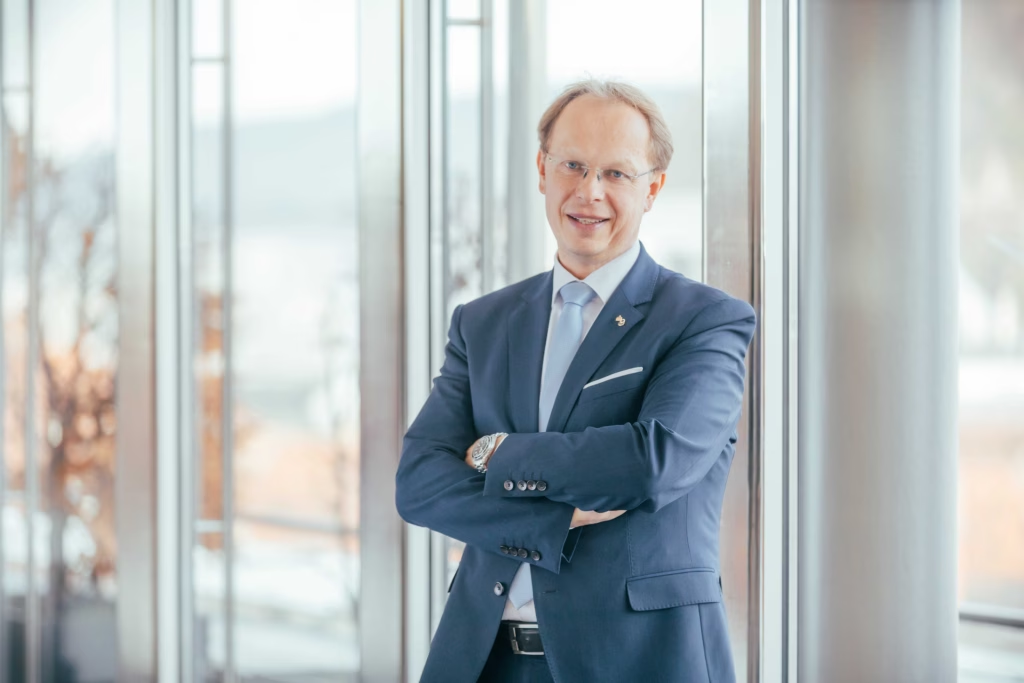
© Margit Kundigraber/Styrian Savings Bank
Clean, affordable energy will be the key factor for the competitiveness of European industrial companies, say the experts at Steiermärkische Sparkasse Private Banking.
As European industry struggles with high energy costs and fierce and often unfair global competition, the CID aims to position decarbonization as a powerful growth driver for European industry. This framework can enhance competitiveness by providing companies and investors with certainty and predictability, allowing them to rely on Europe's continued commitment to replacing fossil fuels with renewable energy sources by 2050. The deal focuses on two closely related sectors: energy-intensive industries and clean technologies. Circularity is also a key element, as it requires optimal use of the EU's limited resources and reducing excessive dependence on third-country raw material suppliers.
Von der Leyen: cutting existing shackles
EU Commission President Ursula von der Leyen stated: "Europe wants to be not only a continent of industrial innovation, but also a continent of industrial production. However, demand for clean products has declined, and some investments have shifted to other parts of the world. As we know, there are still too many barriers for our European companies – from high energy prices to excessive regulatory burdens. The Clean Industry Deal aims to remove the remaining shackles for our companies and present a clear business case for Europe."
From today's perspective, securing supply chains, promoting innovation, and reducing bureaucracy will shape the continent's competitiveness in the coming years and decades. At the forefront, however, the energy sector and its decarbonization will be crucial. The share of clean energy in the form of electricity is expected to rise from the current 21.3% to 32.1% by 2030. According to European climate targets, the level of electrification will reach 50.1% by 2040.
Preventing industrial migration
To encourage industry to remain in Europe and not relocate to regions with lower energy costs, the Commission is placing access to affordable energy and energy bills, as well as a competitive gas market, at the heart of the CID agenda. Another key piece of the overall energy agenda is the promotion of combined heat and power (CHP), which plays a vital role in Member States' electricity systems. District heating supplies 70 million Europeans with hot water and heat. The expected package of measures, such as the new simplified state aid rules, should also take into account the sector's transition to net-zero emissions. Another unique feature is the Modernization Fund, available to 13 Member States to support their energy and social transition. This fund, designed to meet investment needs in generation, grid, and storage, should play a greater role in the future framework of financial instruments.
Private investments significant
The investment needs are enormous. The EU Commission estimates that member states will need to invest an average of €1.5 trillion per year between 2031 and 2050. Private financing will be crucial and will account for the majority of energy investments. The development of the PPA market (= long-term electricity purchase agreement between a producer and a buyer) will also play a major role in this. The CID is promoting the introduction of PPAs with €500 million. The European Investment Bank (EIB Group) will also support the Clean Industry Deal with a range of concrete new financing instruments. Last but not least, skilled workers and top talent are needed for the transformation of industries. The Commission will establish a Skills Union that invests in employees, develops skills, and creates high-quality jobs.
About Steiermärkische Sparkasse:
Steiermärkische Bank und Sparkassen AG was founded in 1825 as a savings bank and was the first financial institution in Styria. As a universal bank, it covers all banking transactions and offers comprehensive services for private customers, small and medium-sized businesses, large corporations, institutional clients, the public sector, and private banking clients. For many years, Steiermärkische Sparkasse's private banking has stood for competent investment and wealth creation. It offers customers comprehensive advisory services in this area, including state-of-the-art asset management and portfolio management, at its locations in both Graz and Vienna's Inner City district.
As the largest savings bank in the Austrian federal provinces, Steiermärkische Sparkasse is an important part of the Austrian Savings Banks Group and also a member of the Savings Banks Liability Association. For almost 200 years, the Styrian financial institution has assumed responsibility for society and the environment. With a comprehensive sustainability strategy, these principles of its founding mission have been transformed into the present and now include climate-related and social goals for tomorrow. "Believe in tomorrow" is our commitment and our contribution to securing a sustainable environment in our region for future generations.
